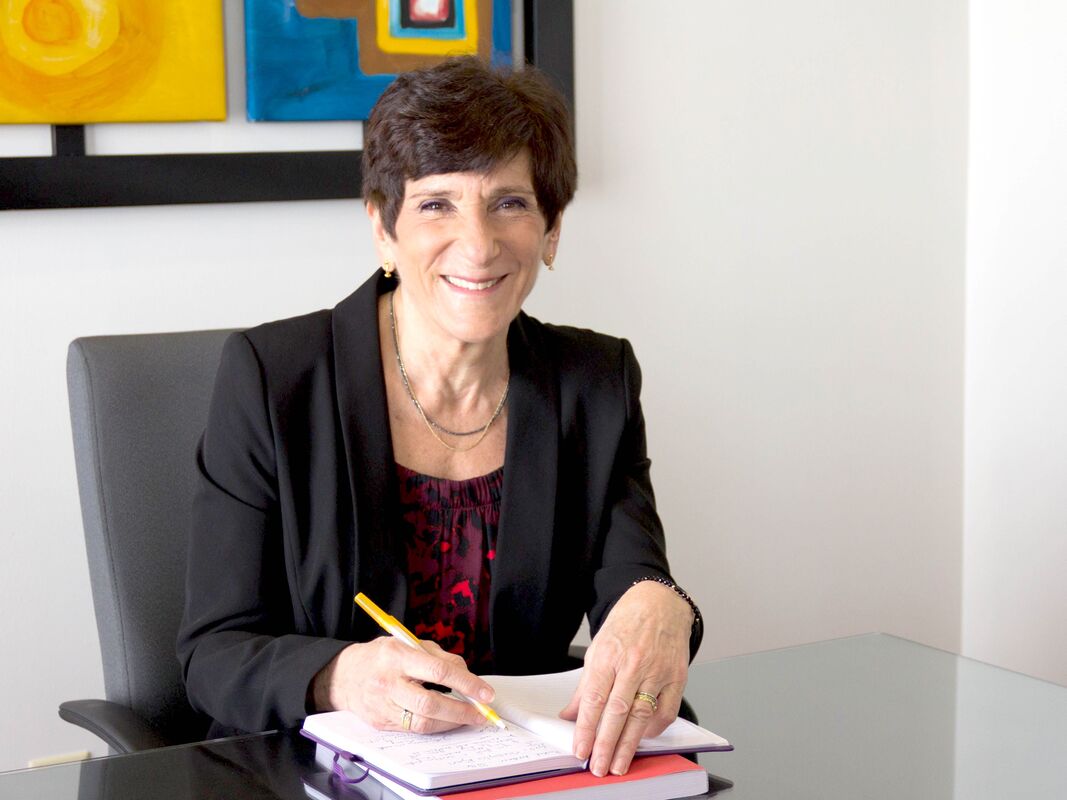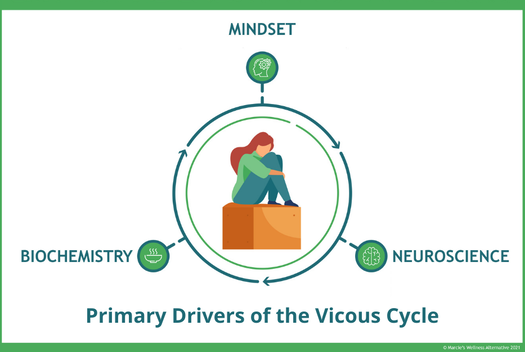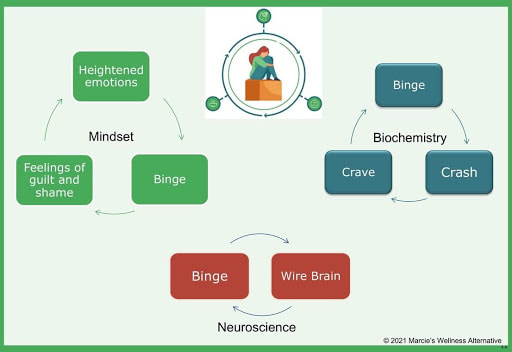|
I’m no stranger to emotional eating. I struggled with emotional eating and yo-yo dieting most of my life. As I got older and the stressors of my corporate career and responsibilities at home increased, so did the instances of binging and dieting. It was a vicious cycle that left me feeling defeated, out of control, and frustrated. For many people, emotional eating can serve as a distraction, a numbing agent, or a familiar soothing source of comfort. It often goes on in secret, adding to the stress of it all. I recently shared my experience as a binge eater and received an email from a reader who has known me over 25 years and said, “I never would have imagined you struggled with this, you always seemed so “buttoned up and in control.” This is actually a very common scenario! Here are some typical thought patterns for emotional eaters:
These may sound familiar. Many of us have experienced emotional eating at some point. The biggest myth is that somehow this is all your fault. It’s not! Breaking free from yo-yo dieting isn’t about willpower. And it CERTAINLY isn’t about trying harder! Today I am going to explain what emotional eating is and why a lack of willpower is not the cause. I will show you how the root cause of emotional eating and yo-yo dieting is firmly rooted in science. Emotional eating and yo-yo dieting are not about willpower – their root cause is firmly based in science. Once you understand the science that drives the vicious cycle, it is easy to see why dieting often fails. Traditional approaches to losing weight tend to feed the cycle. Many experts believe the diet industry has destroyed people’s trust in their own bodies and compromised their health and self-esteem in the process. The good news is, there is a better way. After I explain the root causes, I will describe the solution that addresses them - this is how you can break the vicious cycle. So What is Emotional Eating and Yo-Yo dietingEmotional eating includes eating in response to any emotion, whether positive or negative. It can become a form of disordered eating; an unhealthy relationship with food wherein food is used as a maladaptive coping strategy. The emotional eater is triggered by a heightened emotion and then attempts to minimize or regulate the associated emotional distress – this is often an unconscious behavior pattern, similar to an automatic reflex. Yo-Yo dieting is simply a cyclical pattern of losing and gaining weight. Emotional eaters, especially those who binge eat, tend to get into a cycle of binging and restricting, which often goes hand-in-hand with yo-yo dieting. Binging is eating excessively, and binge eating behavior can vary widely in magnitude and frequency. For emotional eaters and yo-yo dieters, the relationship with food can be seen as a continuum that can fluctuate (in either direction) over time. Some amount of emotional eating falls within the healthy range. As emotional eating increases in frequency and intensity, it becomes more reflective of disordered eating patterns. Most binge eaters will fall somewhere in the middle of the continuum and don’t meet the formal criteria for an eating disorder. At the far right of the continuum is Binge Eating Disorder (BED); a much smaller percentage will be on this end. Remember, it is a matter of magnitude and frequency. Regardless of where you fall on the continuum, the root cause behind these patterns, and the solution are the same. It may take one person longer than another to heal and achieve a healthy relationship with food. Sobering StatisticS
These statistics show how struggles with emotional eating and weight loss are startlingly common. No need to feel alone here! Chances are, if you don’t struggle with this yourself, you know someone who does. It is important to note that plenty of emotional eaters aren’t overweight. They may binge and restrict in a way that keeps their weight relatively stable – this doesn’t mean they aren’t struggling with maladaptive coping behaviors. These individuals may be just as controlled by obsessive thinking and unhealthy behavior as someone who is struggling with their weight. the Science Behind Emotional Eating and Yo-Yo DietinGThe key players are mindset, neuroscience, and biochemistry. They are intricately connected! It all starts with mindset, which then feeds into the neuroscience (habit loops), which feeds into our biochemistry, and then around and around we go! Let’s look at what happens within each one of these components and how they play a role in perpetuating (or breaking) the vicious cycle. Attitudes, beliefs and experiences drive behavior patterns. From an early age, conscious and unconscious attitudes about food and body image start developing. Behaviors around food are modeled in our homes as children. Cultural norms exist around food and we have positive and negative experiences related to food. We develop deeply rooted beliefs as a result of all of this. For example, my very loving Mom was a food pusher. If I was tired, she told me I should eat something for energy. If I had a headache, she said I needed protein. If I did well in school I got a sweet treat as a reward. At the same time, Mom unwittingly body shamed me from a young age, as I was a chubby kid. I started to sneak food and eat alone when nobody was watching. Our experiences can have a profound impact on our relationship with food and related behavior patterns. We all have limiting beliefs that are so deeply ingrained, we often don’t even realize they exist. An example of a limiting belief could be that you can’t “eat healthy” when you go out for a nice dinner, because you have been conditioned to believe that every celebration involves “special” food. With weight loss, yo-yo dieters often develop the limiting belief that they will never lose weight; after all, that is what their experience has taught them. Our brains continuously learn through these experiences with food. This has a profound effect on our behavior. With emotional eating, heightened emotions trigger a binge, which brings on feelings of shame and guilt, which are heightened emotions, and the cycle repeats. Behavior patterns that repeat over and over again become habits. This brings us to the neuroscience piece. Unhealthy eating patterns create neural pathways which cause automated reactions and perpetuate unhealthy eating habits. Neural pathways are created in our brain based on our habits. These pathways get stronger and stronger as the behaviors are repeated. When habits exist for a very long time, the reactions can become like a reflex – an automatic unconscious reaction. These habit loops become part of our behavior patterns. Some may be healthy and serve us well, others do not. The really good news is that you can literally rewire your brain and change these undesirable habits. When you start practicing new behaviors, you create and strengthen new neural pathways. This takes repetition and patience; you can’t undo old habits and replace them with new habits overnight. But it can be done, and this is key to breaking the vicious cycle of emotional eating and yo-yo dieting. As our mindset influences our behavior, that behavior becomes a habit. Repeating the habit strengthens that neural pathway, further reinforcing the habit and making the behavior response more automatic. If we have learned to self-soothe with food in response to a heightened emotion, that may trigger a binge, which brings us to the biochemistry piece. 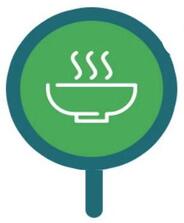 Unhealthy eating patterns throw blood sugar & hormones out of balance causing cravings which can trigger unhealthy eating behavior. We have a complex system of interdependencies that are intended to create homeostasis in the body. Eating in unhealthy ways, e.g., binging, disrupts our body’s natural homeostasis and throws us out of balance. When people binge with food, it is most typically with sweets or other comfort foods that destabilize blood sugar. When blood sugar is raised, it creates instability in hormones that impact mood, hunger, satiety, and physical cravings. Eating foods high in simple carbohydrates causes our blood sugar to spike, which can quickly be followed by a blood sugar crash. The “feel good” hormones, dopamine and serotonin, increase and decrease with blood sugar spikes and crashes. Other hormones, insulin and glucagon, work overtime trying to keep up with all of these blood sugar highs and lows. This causes other unintended imbalances. The hunger regulating hormones ghrelin and leptin become dysregulated, creating confusing hunger signals in the brain. This compromises our ability to know when we are physically hungry and when we are actually full. Our sleep and stress hormones are also affected which can interrupt healthy sleep patterns and cause further imbalances. Eating erratically, over-consuming unhealthy foods, along with the imbalances described above can cause significant imbalances in our gut which can lead to a whole host of further imbalances in the body, and in the mind/body connection. All of this triggers strong cravings and fuels the crave/binge/crash cycle. Bringing it All Together – The Many Cycles of Binge EatingWe don’t have just one vicious cycle, we have cycles that trigger other cycles! No wonder it feels like we aren’t in control. Our brains and bodies are stuck in these habit loops that are neuro- and biochemical in nature, and hard to break. You can see how the binging behavior triggers the perpetuation of each cycle, which makes the binge itself a conditioned automated response. So How Do We Break the Cycle? Now we get to the good news – the solution. How can you stop this vicious cycle from continuing to gain strength, making you feel like you have no control over your own eating behavior? The solution is a non-linear 5-step process. This takes focus and practice – you are retraining your brain and bringing your body into balance. 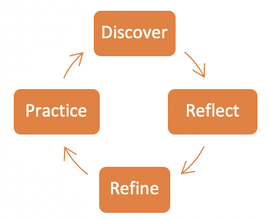 You will:
This is simpler and more straight-forward than it might sound. These steps allow you to immediately start breaking the cycle. It is a continuous process of discovery, reflection, refinement, and practice. You are constantly learning from what does and doesn’t work for your unique self. You will embrace failure as a discovery tool and learn to forgive yourself and not feel like giving up because you will see incremental progress along the way. The key is to break the habit loops and begin to create new healthier behavior patterns, then repeat those until they become your new normal. This is where a health coach can really help and make a difference in your progress. They can be your “guide on the side,” offering support, accountability and critical reflections. There are cognitive behavioral therapy (CBT) tools designed to help with this type of habit change and your coach can also help you learn to use these tools to support the process. Everyone’s journey will be different, but the basic approach is the same. I am here to help! If you want to take a first step, hop on my calendar for a complimentary strategy call and together we can explore what might work best for you.
8 Comments
Jeralyn
3/3/2021 01:30:21 pm
Wow Marcie, this is so well done and researched! Thank you for taking time to explain about emotional eating and yo-yo dieting (and the solutions). It really makes me consider my own experience and potential imbalance of emotionally eating unhealthy foods without doing so consciously!
Reply
Marcie Desmond
3/3/2021 02:54:28 pm
Thank you Jeralyn! It is such a fascinating topic - our thoughts and beliefs around food are frequently so deeply ingrained, we don't even recognize they exist.
Reply
Marcie Desmond
3/4/2021 04:41:13 pm
Thanks Therese. A bit of my software systems engineering background coming through - what can be programmed, can always be reprogrammed!
Reply
Sheryl Nissen
3/4/2021 02:55:19 pm
Marcie...thought your blog was excellent!
Reply
Marcie Desmond
3/4/2021 04:44:37 pm
Thanks Sheryl! I am happy to hear you are taking those nourishing steps! Too often we busy ourselves taking care of everyone else and forget to take the same loving care of ourselves.
Reply
3/9/2021 01:15:44 pm
Wonderful article, Marcie. Eating behaviors are so complicated, and getting rid of the “it’s my fault” mindset is so important to being able to unravel them. Thanks for sharing this very helpful information!
Reply
Marcie Desmond
3/25/2021 01:54:43 pm
Thanks Kathy. It is very complicated it is frustrating to see how many people blame themselves and suffer in silence when it truly isn't their fault and there is actually a practical solution.
Reply
Leave a Reply. |
take control of your health.Connect with a board certified coach to help you succeed with health changes. COACHES:
|

